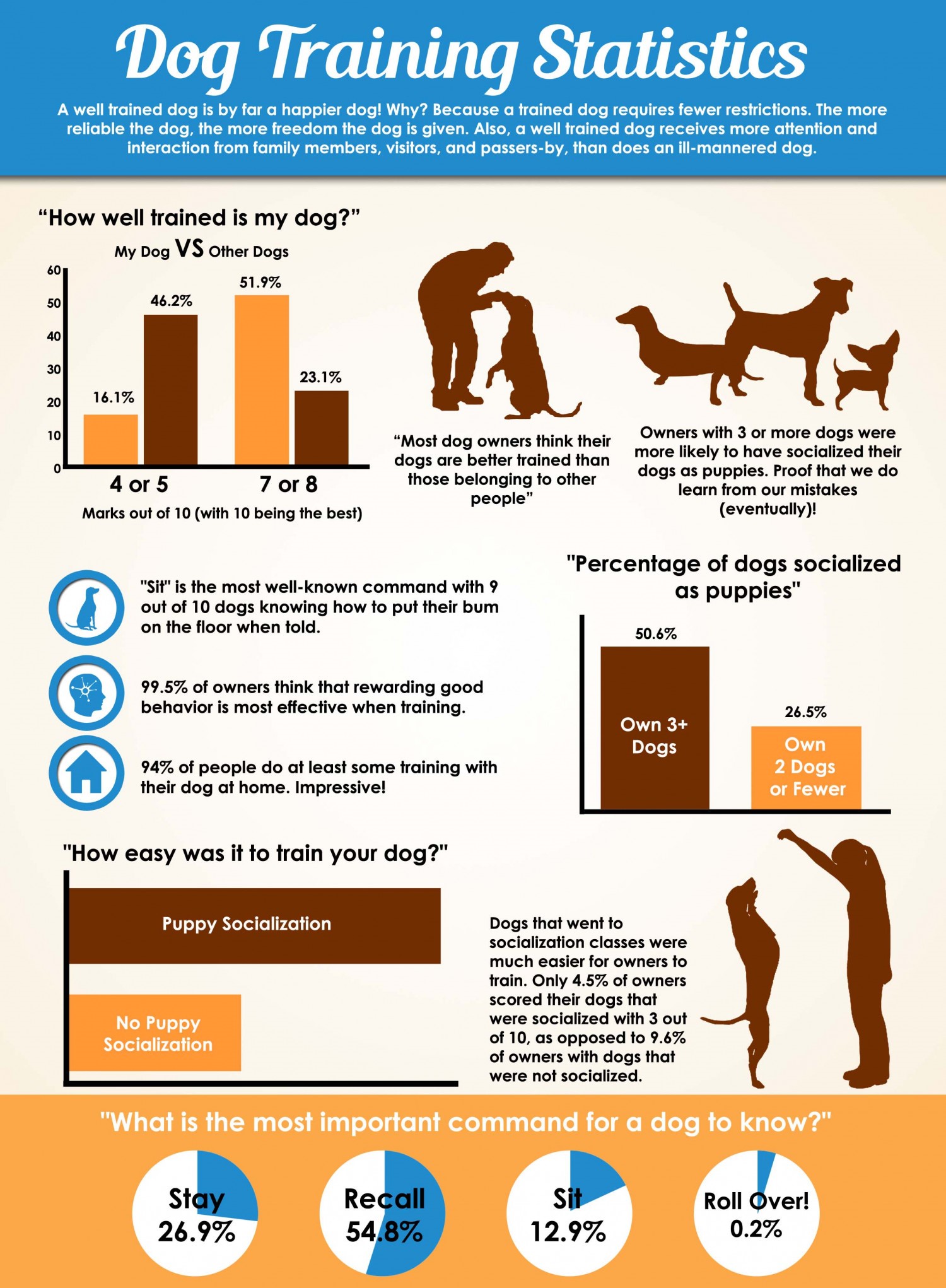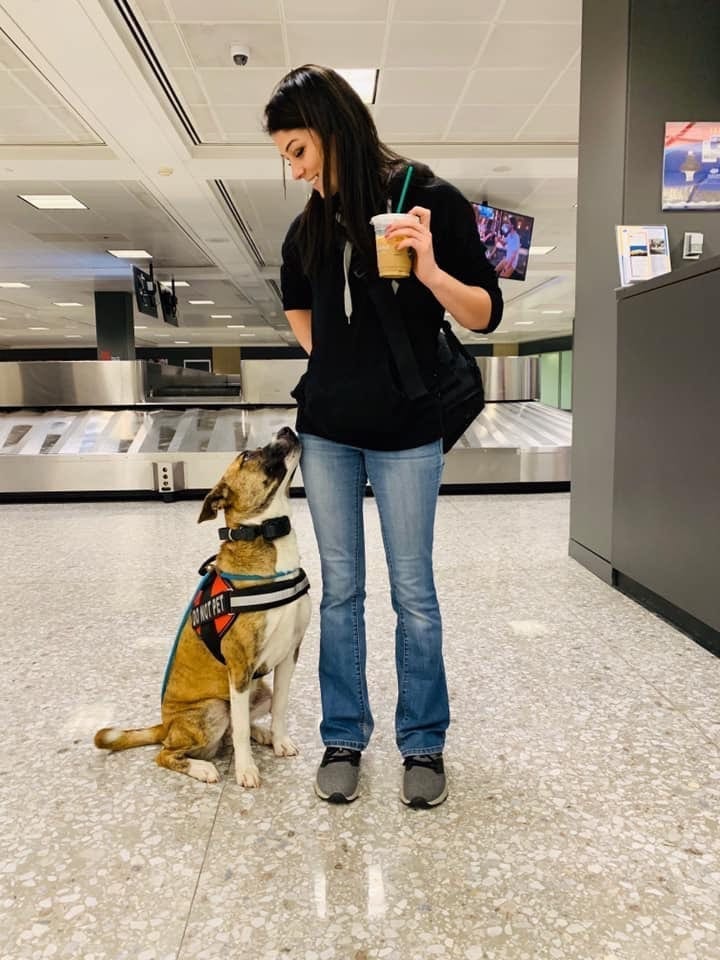Check Out the Different Types of Pet Dog Training Available for Your Furry Pal
Comprehending the different kinds of pet dog training is important for enhancing your canine buddy's behavior and fostering a stronger bond. From fundamental obedience to sophisticated techniques such as agility and fragrance work, each training technique supplies one-of-a-kind advantages tailored to both the dog's and owner's demands. In addition, customized programs address details demands, such as those for service or therapy dogs. As you consider the most effective technique for your hairy pal, it becomes obvious that the option of training can considerably influence your common experiences and results. What factors should you evaluate prior to devoting to a particular training style?
Standard Obedience Training
Fundamental obedience training lays the foundation for a well-behaved canine, establishing the phase for a harmonious partnership between pet and owner. This essential training focuses on teaching dogs essential commands such as rest, remain, come, down, and heel. These commands not just improve communication however additionally promote security in different atmospheres.
The training procedure generally begins with positive support strategies, where incentives such as deals with or praise are offered when the pet dog efficiently adheres to a command. This approach motivates a positive understanding atmosphere, eventually promoting count on between the pet dog and the owner. Uniformity is vital; regular method guarantees that the pet dog keeps commands in time.
In addition, basic obedience training aids to resolve common behavior problems, such as jumping, barking, or pulling on the chain. By developing clear borders and expectations, proprietors can lower undesirable actions and improve their pet's socialization skills.

Advanced Training Strategies
Advanced training methods build on the fundamental abilities developed in basic obedience training, using a pathway to boost a dog's abilities and responsiveness. These techniques commonly entail specialized abilities and commands, enabling pet dogs to perform tasks that call for greater levels of concentration and knowledge.
One popular technique is agility training, where dogs navigate barrier courses, boosting their physical control and mental sharpness. This not just provides workout but likewise reinforces the bond in between canine and handler via teamwork and communication.
An additional advanced technique is scent work, which use a canine's natural olfactory capacities. This training urges canines to recognize and locate particular aromas, improving their focus and analytic abilities. Such tasks can be specifically helpful for breeds predisposed to monitoring.
Solution dog training is another critical location, where canines find out to assist people with impairments. This training needs a high level of obedience and specialized skills customized to the certain needs of their handlers.
Actions Adjustment Methods
Efficient pet training expands beyond instructing abilities and commands; it additionally incorporates actions modification methods that address unfavorable habits. These methods are crucial for remedying concerns such as aggression, too much barking, and separation anxiousness, ensuring an unified connection between canines and their proprietors.
One commonly acknowledged approach declares reinforcement, which involves satisfying wanted habits to motivate their reoccurrence. This technique works in reinforcing excellent routines while minimizing fear or anxiety in the pet dog. On the other hand, aversive strategies, such as punishment or unfavorable reinforcement, are usually inhibited by professionals as a result of their potential to develop worry and anxiousness, bring about more behavioral issues.
One more essential approach is desensitization, which progressively subjects pets to the stimuli that provoke unfavorable behaviors in a regulated manner. This click over here process helps pets learn to stay tranquil and made up in situations that would normally set off stress and anxiety or aggressiveness.
Counter-conditioning is usually used along with desensitization, where the pet dog finds out to associate positive experiences with formerly negative stimulations. Both methods need perseverance and uniformity, making them effective devices for accomplishing durable behavior modification. By employing these therapy methods, pet proprietors can promote a pleased and well-adjusted canine buddy.
Specialized Training Programs
In the realm of canine training, specialized training programs deal with details needs and goals, providing tailored methods that improve a dog's capacities and address special difficulties. These programs are created for numerous objectives, including service dog training, treatment pet dog preparation, and even competitive sporting activities training.
Solution dog training concentrates on furnishing canines with the abilities essential to assist people with disabilities, such as assisting visually impaired proprietors or signaling to clinical emergencies. This training is strenuous and often requires a mix of obedience, socialization, and details task-oriented skills.
Therapy pet programs intend to prepare dogs for emotional assistance duties in hospitals, colleges, and retirement home. These canines should display calmness, sociability, and a gentle temperament, guaranteeing they can provide comfort to those in distress.
Additionally, competitive sports training, such as dexterity or obedience tests, emphasizes fitness, accuracy, and team effort in between the canine and trainer. These programs require a high level of commitment and technique, promoting a strong bond while sharpening the pet dog's athletic capabilities.
Fun and Interactive Training Activities
Just how can dog training be both enjoyable and productive? The solution lies in integrating enjoyable and interactive training activities that boost your pet's mind while reinforcing important abilities. Engaging your pet you can find out more dog through play not only reinforces the bond between you and your furry good friend yet also improves their knowing experience.
One reliable means to attain this is with agility training, where pets browse obstacle courses that challenge their mental and physical capabilities. This activity motivates problem-solving and enhances sychronisation, making it an outstanding option for energetic types. One more alternative is making use of challenge playthings that dispense deals with, which can keep your canine emotionally engaged and motivated to find out.
Additionally, incorporating games like fetch or hide-and-seek can make training sessions extra dynamic. These tasks urge the pet dog to respond to commands in a fun context, promoting obedience while permitting social communication.

Conclusion
In conclusion, different types of pet click this site training are essential for enhancing canine habits and cultivating a solid human-animal bond. Checking out these diverse training options furnishes dog owners with the tools essential to grow all-around, satisfied, and loyal buddies.
Understanding the numerous kinds of canine training is vital for boosting your canine buddy's habits and promoting a more powerful bond. From fundamental obedience to innovative techniques such as dexterity and aroma work, each training approach offers unique benefits tailored to both the pet's and owner's needs.Standard obedience training lays the structure for a well-behaved pet dog, establishing the phase for a harmonious partnership in between animal and proprietor.The training process usually begins with positive reinforcement techniques, where incentives such as treats or appreciation are supplied when the pet efficiently follows a command.In conclusion, different kinds of pet training are crucial for improving canine actions and cultivating a solid human-animal bond.